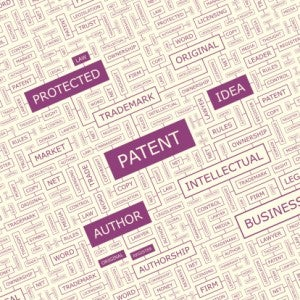Part 3: Troll Wars: The Problem Can Only be Solved by Congress

Note: This blog is cross-posted from Mike Dillon’s personal blog.

http://blogs.adobe.com/conversations/files/2014/03/Patent.jpg
When it comes to claims by patent trolls, the short answer as to why more companies don’t fight back is – cost. A company can expect to incur several million dollars for outside counsel, expert witness, and jury consultant fees to defend a case involving a single patent. If multiple patents are asserted the costs are significantly higher. In addition, there is time required of a company’s finance, legal and engineering teams to support the company’s defense – time better spent on the company’s business. In the Select Retrieval case, discussed in my last post, we spent more than $200,000 defending our customer even though that case was resolved very early in the litigation process. For a small retailer or a start-up this amount could be prohibitive.
The lawyer representing the patent troll who told me it was about “economics” was correct, of course. It is about economics – asymmetrical economics. A lawsuit by a patent troll potentially puts at risk a company’s products (in the remote case where a jury finds infringement), but more importantly requires a company to incur the costs described above. On the other hand, the cost to a patent troll is almost negligible. While there is some risk that a patent might be found to be invalid during the course of litigation, this happens infrequently. Also, lawyers for patent trolls are usually paid on a contingency basis. Consequently, the patent troll has little out of pocket expense – but tremendous upside opportunity.
If the root of the problem is asymmetrical economics, why don’t we change things to level the playing field? For example, what if we allowed the prevailing party in a patent troll litigation to recover its legal fees from the other party? Risk and expense are then part of the equation for BOTH parties.
Surprisingly, current law already provides for this. Under 35 U.S.C. Section 285 a court “in exceptional cases may award attorney fees to the prevailing party.” Many commentators, including Judge Rader, chief judge for the U.S. Court of Appeals for the Federal Circuit, have advocated that judges apply this law more often. Yet courts rarely do because of confusion over what constitutes an “exceptional” case. Does this mean that the lawsuit was brought in bad faith? That it was objectively baseless? It’s unclear. Currently, there are two cases before the U.S. Supreme Court that may provide clarity. However, given the reports of how the hearings went, it doesn’t look like the Supreme Court will be able to rationalize the standard to a level that will actually solve the problem.
The uncertainty in the application of Section 285 also goes to the question posed in my last blog: “Why did Select Retrieval settle for nothing?”
The answer could be that Select Retrieval had settled or dismissed most of the other defendants in the California case and didn’t want to litigate against just a single defendant in one court. Or, it could be that Select Retrieval knew that it had a weak case and didn’t want to risk losing at trial and having attorney fees awarded against it under Section 285.
After Adobe settled the case with Select Retrieval, we asked the court to award us attorney fees under Section 285. In our view, the fact that Select Retrieval dismissed the case with no payment indicated that they filed the lawsuit in bad faith, with no real belief that they would prevail on the merits. The court, however, rejected our request finding that Select Retrieval’s conduct did not meet the “exceptional” standard because the case was dismissed and, consequently, the merits of the lawsuit were never tested. In other words, in this court’s view, absent some type of clearly egregious conduct by a patent troll, the court will not award attorney fees unless there is a trial. Because most patent troll cases never go to trial this means that Section 285 won’t change the asymmetrical economics.
The real answer lies with Congress. There are currently a number of proposed bills in the Senate directed at patent reform and the patent troll problem. These contain different proposals that help address the issue; for example, requiring that patent troll lawsuits against customers be stayed, until the case against the company producing the allegedly infringing product is resolved. While helpful, however, most of these measures do not get at the root of the problem – the asymmetrical economics. The solution is to change the standard articulated in Section 285 to one in which the presumption is that legal fees and expenses will be awarded to the prevailing party.
Last December, the House passed what is referred to as the “Innovation Act” (H.R. 3309) that provides just this. It states: “The court shall award, to a prevailing party, reasonable fees and other expenses incurred by that party in connection with a civil action, unless the court finds that the position of the non-prevailing party was reasonably justified or that special circumstances make the award unjust.” Under this standard, Select Retrieval would have been required to reimburse Adobe the $200,000 we spent in defending our client unless it could show that the lawsuit was reasonably justified or that special circumstances existed that would have made this unjust. We doubt that it could have met this standard.
The Innovation Act is one of those rare pieces of proposed legislation these days that has true bipartisan backing in the House and from the President. Currently, Senator Leahy is considering incorporation of much of the Innovation Act – including a fee-shifting provision – in a proposed Senate bill. Let him know that you support this and passage of a Senate bill.
Once this happens American companies can get back to focusing on innovation and job creation.